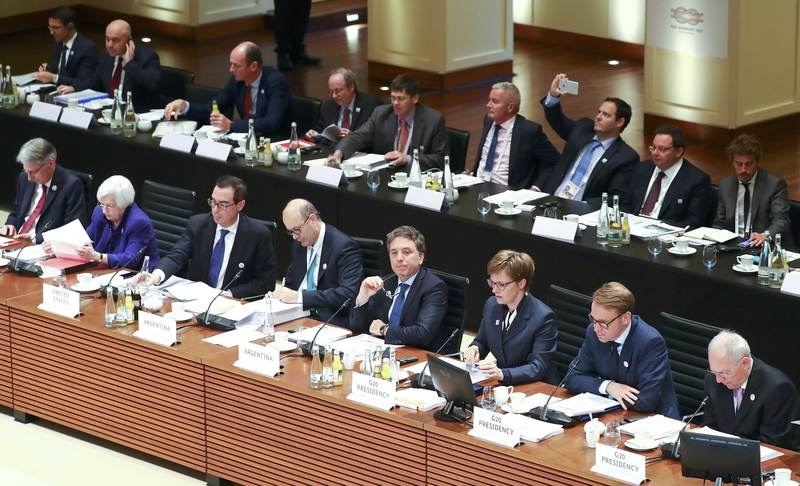Cairo – Amidst rising fears of a trade war, a result of the United States’ “America First” policy, the G20 forum convened for two days, holding sessions that end today in German town of Baden-Baden.
In his first multilateral meeting as US Treasury Secretary, Steven Mnuchin is tasked with relaying the new US President Donald Trump orientation—which is at odds with the G20’s sacred notion of free trade.
The difficulty stems from a major shift in the views of the United States, where the new Trump administration is considering protectionist trade measures to curb imports and considers efforts to try to halt global warming a “waste of money”.
In an unusual turn of events, hinting growing tensions, German Chancellor Angela Merkel and Chinese President Xi Jinping emphasized in a telephone conversation the importance of free trade for a growing global economy, according to a statement from Merkel’s office.
German Chancellor Angela Merkel and Chinese President Xi Jinping agreed to work together for free trade and open markets, a German government spokesman said.
“They spoke in particular about the conditions to expand electromobility in China which will allow the German auto industry to continue to be successful in the Chinese market,” said the spokesman.
The two leaders also agreed to continue cooperation, especially in the framework of Germany’s presidency of the G20, said the spokesman.
Sources said that “the conclusive statement has almost been completed … two issues are yet to be agreed on: trade and funding the fight on global warming.”
The G20 might also drop their explicit endorsement to finance counter climate change efforts, the draft showed.
The group does not want to mention (rejection of protectionism) in the final statement, which has been the case for years for every G20 conclusive statement. A draft of the statement showed that, for now, the issue of trade and protectionism is not mentioned at all. This breaks with a decade-old tradition of the G20 endorsing free trade and rejecting protectionism.
The stipulation on free trade will most likely be delayed for the scheduled G20 leaders meeting in Hamburg next July.
The draft of the final statement shows that top financial officials in the world will shun competitive devaluations on currency, and warns of exchange rate fluctuations.
